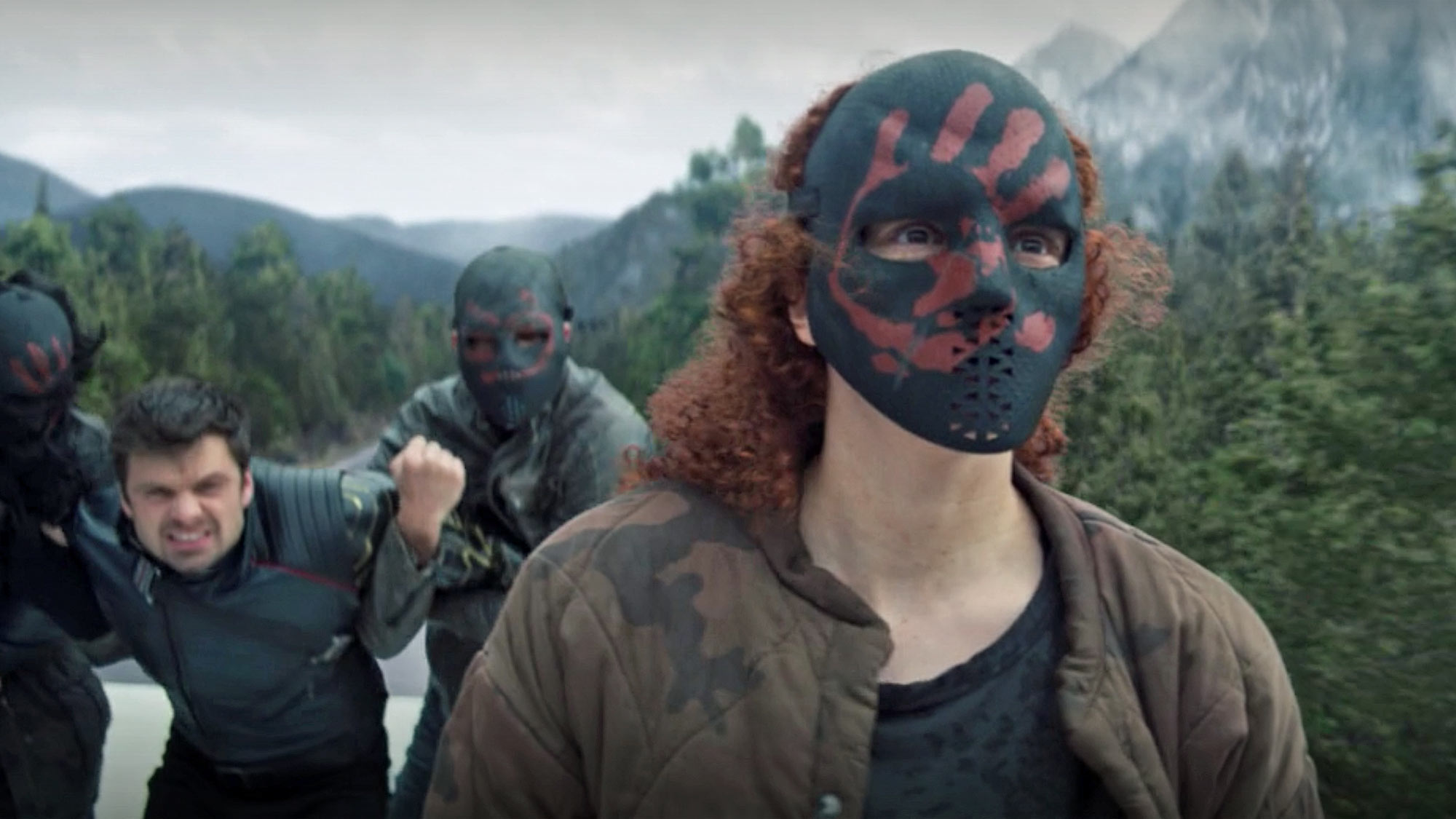The Falcon and The Winter Soldier… and The Straw man?

As a show that is inextricably linked to and stems from the political allegories of previous Captain America films, The Falcon and The Winter Soldier is not very subtle with its attempt at neatly reducing ideologies into simple characters. Ultimately, this show suffers from a common issue that many political allegories that are made palatable for younger and wider audiences continue to replicate, such as The Legend of Korra. Several characters in the show serve to be a stand-in for some broad ideological view but the main characters must always remain moderate as to not alienate a subsection of viewers. For example, the biggest offender is the show’s central antagonists, the flag-smashers. This is a group that seeks to create a world without borders that remain cooperative and they mainly are enemies of the state. They are depicted as on-the-run outlaws that are supported by the impoverished across the globe and still manage to provide resources for those in need. Clearly, the subtext here is that they undeniably the good guys, right? Not necessarily. This group functions as a stand-in for anarchist and leftist ideologies as seen by their participation in mutual aid, belief in collectivist action, and opposition to the state. This means that Marvel Studios, as a brand name, cannot be too supportive of this view because it would be divisive among the audience and hurt the public image (as well as potentially being a violation of their contract with the Department of Defense).

These are their mask that identifies their faction
In order to make it very clear that the producers of a show do not support the views that are espoused in that work, the writers will make it very clear that they are actually bad guys. In the case of outright anti-authoritarians, this is done in a variety of ways but the most common one is making them terrorists (see Bomb-Throwing Anarchists). The flag-smashers are shown doing unnecessarily violent and harmful things (even things that explicitly contradict their beliefs) as a means of making it very clear that they are evil. At a certain point, they begin to be inseparable from any other villain out for senseless chaos.
This also allows the main protagonist to position themselves as the sensible alternative to the hateful antagonist. In this case, Sam Wilson gets to be the wise “reformist” in his opposition to the unruly revolutionaries in the flag-smashers. This means that the main character can say they agree with the goals of the antagonist, as the Falcon does several times, but do very little in pursuit of that goal because they are too busy stopping the larger threat of anarchistic terrorism. By creating a false dichotomy in the characters between the extremist and centrist, the writers can make judgments on the broader ideologies they represent.